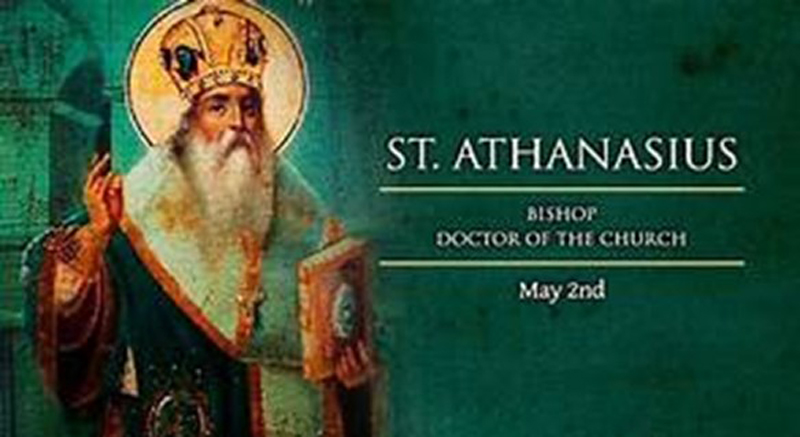Athanasius was born of a Christian family in Alexandria, Egypt, where he received a classical education.
In 319, Athanasius was ordained a deacon, and later became a priest. He served as secretary to Bishop Alexander, who vigorously opposed the Arian heresy, the belief named after a priest called Arius who claimed that Jesus wasn’t truly divine but merely human.
In 325, Athanasius accompanied Bishop Alexander to the Council of Nicaea, which officially condemned Arianism, but Alexander died shortly after the council, recommending on his deathbed that his secretary Athanasius be chosen as his successor. Athanasius would go on to lead the diocese for 46 years but continue to combat with Arianism.
Unfortunately, Arius gained the sympathy of the emperor, and his heresy flourished. Many bishops and priests abandoned the Church’s true teaching, accepting Arianism instead. The emperor ordered Athanasius to reinstate the heretical priest; when the bishop refused to do so, he was banished from Egypt.
On four separate occasions Athanasius was sent into exile (spending 17 as bishop away from his diocese); nothing, however, could make him cease defending the divinity of Christ. St. Athanasius played perhaps the major role in helping the Church eventually overcome Arianism (though it continued for some years after his death in 373); for this reason, and because of his learned writings (including the Life of St. Anthony), he is considered a Doctor (an eminent and reliable teacher) of the Church.
Adapted by A.J. Valentini from: Saints Editor. (2021, April 13). St. Athanasius (Bishop and Doctor). Catholic Exchange. https://catholicexchange.com/st-athanasius-bishop-and-doctor
